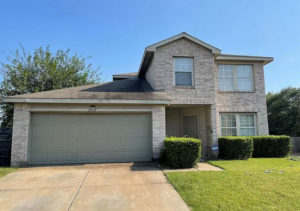
The “jumbo” in jumbo reverse mortgages came from being designed exclusively for “jumbo” or high-value houses. At times, they have also been referred to as proprietary or private reverse mortgage programs. However, such programs have become much more common and are no longer limited to very costly houses. Thus, the label “private reverse mortgage” is becoming increasingly widespread.
What Is a Jumbo Reverse Mortgage?
A proprietary reverse mortgage, often known as a “jumbo,” is a loan that allows elderly homeowners to access the equity in their houses through a private lender. They are not as strictly regulated as home equity conversion mortgages (HECMs) and are not guaranteed by the federal government.
Proprietary reverse mortgages account for only a tiny portion of the reverse mortgage industry, and the majority of its clients possess houses worth more than the Federal Housing Administration’s (FHA) limit.
Who Should Apply for Jumbo Reverse Mortgages?
Put simply, if your house is valued higher than $822,375, you can’t apply for the standard FHA-insured reverse mortgage, which puts you in the market of jumbo reverse mortgages. Jumbo reverse mortgages are intended for high-end real estate and residences in highly competitive local markets.
They are not guaranteed by the FHA but are created and supported by private lenders. Borrowers are, nevertheless, subject to the same responsibilities as they are with regular reverse mortgages.
Homeowners must be over 62, continue to reside in the house, own the home outright, have a modest mortgage balance that can be paid off with the proceeds, and have the financial resources to maintain the property and pay all related costs.
Who Shouldn’t Apply for Jumbo Reverse Mortgages?
In some situations, seniors may not wish to seek a private reverse mortgage. Typically, this would entail “non-borrowing” spouses—those who live in the house but are under 60.
FHA reverse mortgages have safeguards to ensure the couples can remain in their home for the remainder of their lives. For example, if a 60-year-old marries a 40-year-old, the 40-year-old can live in the house mortgage-free for the rest of their lives. In a jumbo reverse mortgage, there are no such safeguards for non-borrowing spouses.
Before obtaining a jumbo reverse mortgage, inquire with your lender as to whether you, your spouse (including an eligible non-borrowing spouse) or co-borrower would ever be compelled to leave your home due to the loan balance. In addition, inquire whether you or your heirs will be required to pay any difference between the sale price of your house and the loan amount.
Comparing Jumbo and FHA-Insured Reverse Mortgages
Jumbo reverse mortgages are proprietary loans, which means they are exempt from the Department of Housing and Urban Development’s program guidelines. Numerous lenders provide jumbo reverse mortgages, and their specific features differ. Some private reverse mortgage programs have benefits that the FHA-insured Home Equity Conversion Mortgage (HECM) does not. These might include:
- Borrowing privileges on non-FHA-approved condo units
- The option to withdraw the whole amount of a lump sum payment upfront with fewer limitations than the HECM program.
- Jumbo reverse mortgages do not require a mortgage insurance premium, which is required for all HECM loans.
However, in most ways, jumbo reverse mortgages are pretty similar to HECMs. Jumbo programs usually involve reverse mortgage counseling, offer multiple disbursement alternatives such as a lump amount and a jumbo line of credit, and allow borrowers to access their home equity while still living in the house.
Conclusion
If you’re thinking about getting a Jumbo or proprietary reverse mortgage, you should research interest rates and costs from several lenders. Furthermore, it would help to compare those estimates to numerous HECM quotes to determine which choice provides the most significant value.
At Michael Harrell Group, we take immense pride in providing the best jumbo reverse mortgage in Texas. Call us at (214) 269-3593 to request a free quote!

